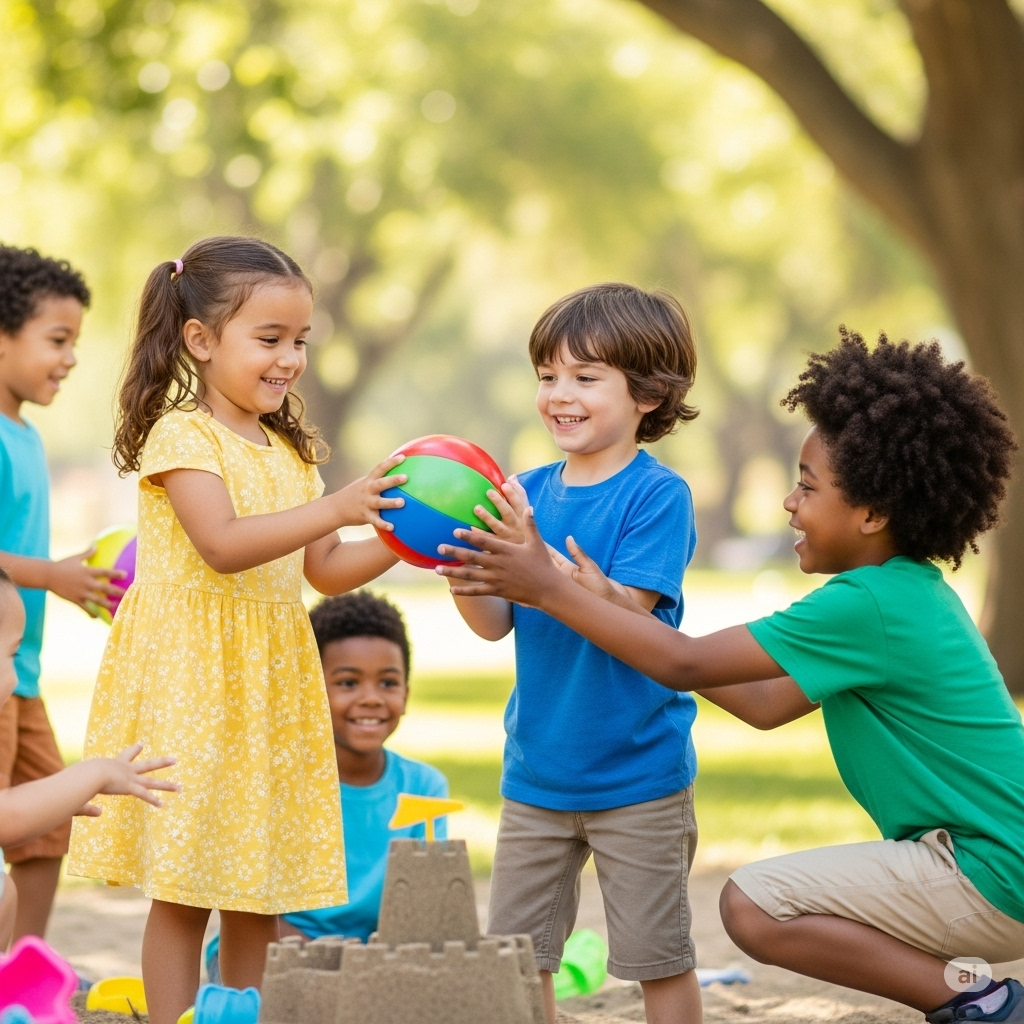Friendships are one of the most important parts of childhood. They teach children how to share, solve problems, set boundaries, and feel accepted for who they are. But just like any skill, building and maintaining healthy friendships requires guidance—and often, a little help from caring adults.
In this article, you’ll learn how to support your child in developing the social skills, confidence, and emotional awareness needed to form strong, respectful, and lasting friendships.
Why Healthy Friendships Matter
Kids with healthy friendships tend to:
- Have higher self-esteem
- Experience less loneliness
- Perform better in school
- Cope with stress more easily
- Develop strong communication skills
Friendships aren’t just “nice to have”—they’re a vital part of emotional development.
1. Teach What Makes a Good Friend
Start by helping your child understand what qualities to look for and practice in a friend.
A good friend is:
- Kind
- Honest
- Respectful
- Fun to be around
- Someone who listens and includes others
Ask your child:
- “What do you like most about your friends?”
- “What kind of friend do you want to be?”
This builds awareness of character, not just popularity.
2. Practice Social Skills at Home
Many children need help with basic friendship-building behaviors, such as:
- Saying hello
- Joining a game
- Taking turns
- Listening without interrupting
- Apologizing when needed
You can practice these through:
- Role-playing (“What would you do if…?”)
- Puppet shows
- Observing characters in books or shows and discussing their actions
3. Create Opportunities for Connection
Children need chances to build friendships through:
- Playdates
- Group classes (sports, art, music)
- School or neighborhood events
- Library programs or clubs
Keep playdates short and simple at first. If your child is shy, start with parallel play or activities where they don’t need to talk much.
4. Coach—Don’t Control
It’s tempting to jump in and manage your child’s friendships, but they learn most by doing.
Your role is to:
- Observe without interfering
- Offer support when asked
- Debrief afterward: “How did that feel? What went well? What was hard?”
Be their guide, not their fixer.
5. Help Them Navigate Conflict
Friendship conflict is normal. Teach your child that it’s okay to disagree—as long as it’s done respectfully.
Support them in learning to:
- Use “I” statements (“I felt sad when you didn’t include me.”)
- Take responsibility (“I shouldn’t have shouted. I’ll try again.”)
- Take a break if emotions run high
- Repair after conflict (apologize, talk it out, make amends)
Conflict resolution builds resilience and emotional maturity.
6. Encourage Empathy
Empathy helps kids build deeper connections and understand how their actions affect others.
Practice by asking:
- “How do you think your friend felt when that happened?”
- “What could you do to help them feel better?”
- “What would you want if the roles were reversed?”
Also model empathy in your own relationships—kids are always watching.
7. Respect Temperament and Personality
Not all kids are social butterflies—and that’s okay.
Some children:
- Prefer one or two close friends
- Need more downtime between social events
- Feel overwhelmed in groups
Support your child’s natural social rhythm. Help them connect in ways that honor who they are, not who you wish they were.
8. Talk About Red Flags and Boundaries
Even young children can learn to recognize unhealthy friendship dynamics, such as:
- Teasing that goes too far
- Exclusion or manipulation
- Feeling pressured to do something wrong
Teach them:
- It’s okay to say “no”
- Friends should make you feel safe and accepted
- You can walk away from a friendship that doesn’t feel right
Reinforce that kindness should go both ways.
9. Celebrate Positive Friendship Moments
When your child shows kindness, inclusion, or patience with a friend, point it out:
- “You really listened to your friend when they were upset—that was thoughtful.”
- “I saw how you helped your classmate feel welcome. That’s what great friends do.”
- “You waited your turn so patiently—nice teamwork!”
Positive feedback strengthens good habits.
10. Be a Safe Base
Friendships can bring joy—but also hurt. Sometimes your child will come home disappointed, rejected, or confused.
When that happens:
- Listen without fixing
- Validate their emotions
- Remind them of their worth
- Offer reassurance: “You’re a great friend. Let’s figure this out together.”
Your steady support is what helps them grow through tough social moments.
Final Thought: Friendships Take Practice
Healthy friendships don’t just happen—they’re built. With time, guidance, and safe support, your child can learn how to be a kind, confident, and compassionate friend.
And in the process, they’ll discover something even more powerful than popularity: real connection.
